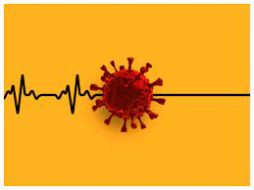SUMMER CARE WHILE OUTING:
If you are planning to spend time outside during the summer, there are several precautions you can take to protect yourself from the heat and other summer-related risks. Here are some tips:
- Stay hydrated: Drink plenty of water before, during, and after your outdoor activities. This is especially important if you plan to be active and sweat a lot.
- Wear appropriate clothing: Dress in lightweight, loose-fitting, and light-colored clothing that covers as much skin as possible to avoid sunburn.
- Use sunscreen: Apply sunscreen with an SPF of at least 30 to any exposed skin before going outside, and reapply every 2 hours or more frequently if swimming or sweating.
- Avoid the sun during peak hours: Try to avoid being outdoors during the hottest parts of the day (typically between 10 a.m. and 4 p.m.), or seek shade under a tree or umbrella.
- Protect your eyes: Wear sunglasses with UV protection to shield your eyes from the sun’s harmful rays.
- Stay cool: Seek out air-conditioned spaces or shady areas to take breaks and cool off during outdoor activities.
- Be aware of the risks: Heat exhaustion and heat stroke are serious risks during the summer. Be aware of the signs and symptoms, such as headache, dizziness, nausea, and confusion, and seek medical attention if necessary.
By following these tips, you can help ensure a safe and enjoyable summer outdoor
SUMMER FOOD CARE:
Summer is a great time to enjoy the outdoors and all the delicious foods that come with the season. However, it’s also important to take care of your body and health during the hot months. Here are some tips for summer food care:
- Stay hydrated: Drinking plenty of water is crucial during the summer months to keep your body hydrated and prevent heat exhaustion. You can also try infused water with fresh fruits or herbs for added flavor.
- Choose fresh fruits and vegetables: Summer is a great time to enjoy fresh fruits and vegetables that are in season, such as watermelon, berries, tomatoes, and cucumbers. These foods are high in water content and can help keep you hydrated.
- Avoid heavy meals: Heavy meals can make you feel sluggish and uncomfortable in the summer heat. Instead, choose light and refreshing meals, such as salads, smoothies, and grilled vegetables.
- Be careful with food storage: It’s important to properly store and handle food during the summer months to prevent foodborne illnesses. Keep perishable foods refrigerated or in a cooler with ice and avoid leaving food out in the sun for too long.
- Limit alcohol and caffeine intake: Both alcohol and caffeine can dehydrate the body, so it’s best to limit your intake during the hot summer months.
By following these tips, you can enjoy delicious summer foods while also taking care of your body and health.
FOODS TO BE AVOIDED DURING SUMMER:
During the summer, it’s important to stay hydrated and avoid foods that can cause digestive discomfort or increase body heat. Here are some foods you may want to avoid during the summer:
- Spicy foods: Spicy foods can increase body heat and cause discomfort in hot weather.
- Fried foods: Fried foods are heavy and can be difficult to digest, leading to stomach discomfort and sluggishness in the heat.
- Heavy meats: Heavy meats such as beef, pork, and lamb can be difficult to digest and may make you feel weighed down in the heat.
- Dairy products: Dairy products such as cheese and ice cream can be heavy and difficult to digest, causing stomach discomfort and making you feel sluggish in the heat.
- Alcohol: Alcohol can dehydrate you and increase body heat, making you more susceptible to heat exhaustion and heatstroke.
- Caffeine: Caffeine can also dehydrate you and increase body heat, so it’s best to limit your intake of coffee, tea, and energy drinks during the summer.
- Carbonated drinks: Carbonated drinks can cause bloating and discomfort in the heat, so it’s best to avoid them or limit your intake.
Overall, it’s important to eat light, hydrating foods during the summer, such as fruits and vegetables, lean proteins, and whole grains. And don’t forget to drink plenty of water to stay hydrated!
COMMON SUMMER COMPLAINTS FOR ADULTS :
During the summer season, adults may experience a variety of complaints related to the heat, humidity, and other environmental factors. Here are some common summer complaints for adults and some tips for managing them:
- Dehydration: When temperatures rise, it’s important to drink enough water to prevent dehydration. Symptoms of dehydration include thirst, dry mouth, fatigue, and dizziness. To prevent dehydration, drink plenty of water throughout the day, avoid alcohol and caffeine, and eat foods with high water content, such as fruits and vegetables.
- Sunburn: Spending time outdoors during the summer can lead to sunburn, which can be painful and increase the risk of skin cancer. To prevent sunburn, wear protective clothing and apply a sunscreen with an SPF of at least 30. If you do get sunburned, apply cool compresses and moisturizers to soothe the skin.
- Heat exhaustion: Prolonged exposure to high temperatures and humidity can lead to heat exhaustion, which can cause symptoms such as fatigue, headache, nausea, and dizziness. To prevent heat exhaustion, stay indoors during the hottest part of the day, wear lightweight, breathable clothing, and drink plenty of water.
- Allergies: Summer can be a challenging time for people with allergies, as pollen, dust, and other allergens are more prevalent. To manage allergies, take allergy medications as prescribed by your doctor, keep windows closed to prevent allergens from entering your home, and avoid spending time outdoors during times when pollen counts are high.
- Insect bites and stings: Mosquitoes, ticks, and other insects can be a nuisance during the summer, and their bites and stings can be painful and itchy. To prevent insect bites, use insect repellent, wear protective clothing, and avoid standing water where mosquitoes breed. If you do get bitten or stung, apply ice to reduce swelling and take antihistamines to reduce itching.
- Heat rash: Heat rash occurs when sweat ducts become clogged, leading to red bumps and itching. To prevent heat rash, wear loose, breathable clothing, and avoid spending too much time in humid environments. If you do get heat rash, apply cool compresses and use over-the-counter creams to soothe the skin.
MAINLY IN CHILDREN WE COME ACROSS
- Poison ivy and other plant rashes: Children can develop rashes from exposure to poison ivy, poison oak, or poison sumac. Teach your child to identify these plants and avoid them. If your child does come into contact with one of these plants, wash the affected area with soap and water as soon as possible.
- Swimmer’s ear: Swimmer’s ear is an infection of the outer ear canal that can occur when water remains in the ear after swimming. Keep your child’s ears dry by using earplugs or a bathing cap when swimming.
- Eye irritation: Eye irritation can occur when children spend a lot of time outdoors in the sun and wind. Symptoms include redness, itching, and tearing. Encourage your child to wear sunglasses and a hat to protect their eyes.
- Sweat rashes causes more irritation for kids , use cooling talcum powders that are free from silicates and parabens.
It’s essential to be aware of these summer complaints and take steps to prevent them. Encourage your child to drink plenty of fluids, wear protective clothing, and avoid prolonged exposure to the sun and heat. If your child does experience any of these complaints, seek medical attention if necessary.





